Taylor Swift, Ramadan timings, Dubai School Fees, Prince William, COVID-19 protocols and Teacher shortages – What made the news for schools, parents and students in education this week?
The Schools Report brings you the SchoolsCompared.com official Weekly Briefing on the Hottest News in Education.
Every Friday we bring you the latest stories in education in the UAE and around the world in the last 7 days. Here’s what’s been happening this week…
This Week in Education. UAE Education News. First. Every Friday. Only from SchoolsCompared.com.
Study: Ramadan fasting can make pupils perform better at school
The strict observance of daily fasting and prayer can improve educational outcomes, research into the impact of Ramadan suggests.
The findings appear to counter concern that disrupted sleep patterns and lack of food or drink from dawn until sunset during the holy month could be harmful to health.
The principal conclusion, set out in a working paper by Erik Hornung, professor of economic history at the University of Cologne and submitted to the Journal of Economic Behaviour and Organisation, completely defies those of previous studies by suggesting that the more intensive the observance of Ramadan fasting, the more educational benefits accrue.
Study lead author Erik Hornung has revealed to The National the motivation behind the empirical analysis – and says that he, too, is surprised by the results.
“My colleagues and I are interested in understanding better the relationship between religion and education,” Prof Hornung says.
“We wondered if we could study one specific aspect of religiosity where it’s pretty clear that people follow very specific rules that have been thus far described as relatively detrimental [like Ramadan fasting], and see how it affects educational outcomes specifically of students who are in their adolescence.
“We were surprised to find that there seem to be positive effects from this experience on the performance of students in tests following Ramadan.”
Read more: How Ramadan can improve educational outcomes for students (thenationalnews.com)
Is a British education (still?) the best in the world for power and influence? Does it matter?
Is a British education the best in the world – and in what ways? For many parents, the choice of a British curriculum is still driven by its reputation for delivering the “gold standard” education for children – culminating in equally gold standard A Levels and a bullet proof springboard into top-tier universities, roles in business and industry worldwide. So too a driver for choosing British schools often remain the networking contacts that follow and last a lifetime; while it might be natural that UK royals like Prince William studied a British education, the fact that Emirati sheikhs and many other world leaders have done so too goes to show the cachet that its reputation holds. But as question marks are raised over the usefulness GCSEs, A-levels’ emphasis on narrow areas of knowledge versus broader alternatives, and the British curriculum’s obsession with assessment through exams – not to mention the detrimental psychological impact this can have – is the lure of a British education starting to lose its lustre?
Read more of Jon Westley’s thought-provoking article, and our choice of the region’s happiest schools, here.
Teacher shortage: New data shows school teacher vacancies at a five-year high
Secondary school classroom teacher vacancies are at their highest level in at least five years, new data from the UK suggests.
The data, from UK-based teacher-jobs site TeachVac, shows the highest recorded number of secondary teacher vacancies in the last five years, with a 12 per cent increase since the last comparable year (2020).
In 2020, there were 19,626 secondary teacher vacancies recorded in three months (between January and March, inclusive). This figure was 22,014 for the same period in 2022 – higher than any of the previous four years.
The data also shows a 47 per cent increase in the number of vacancies found in March 2022 (9,984) compared to March 2020 (6,811).
General teacher vacancies (primary and secondary) in the first three months of this year have also risen by 29 per cent compared to 2020.
In 2022, 33,580 overall teacher vacancies were recorded by the end of March, much higher than in 2020 when 25,939 were recorded for the same period.
Design and technology saw the largest increase in vacancies, followed by Business and Computing.
So what could be behind this trend? Professor John Howson, chair at TeachVac, theorised that the increase in recorded vacancies could be down to “more teachers quitting schools in England” and either leaving the tutoring profession completely, or moving to teach at international schools abroad – such as those in popular expat destination such as the UAE.
However, schools in the UAE are also experiencing an increased need for teaching staff amidst growing student enrolment and a shortage of international candidates. While Dubai school fees have been frozen for the third year in a row – resulting in a subsequent ongoing pay freeze for most teaching staff in the emirate – the UK government awarded teachers their biggest pay rise in 15 years in the summer of 2020.
A UK Department for Education spokesperson said: “Whilst teaching remains an attractive and fulfilling profession, we know improvement is needed in some areas to attract and retain staff.
“We have also put in place a range of measures including bursaries worth £24,000 (Dh115,421) tax-free and scholarships worth £26,000 (Dh125,040) tax-free, to encourage talented trainees to key subjects such as chemistry, computing, mathematics and physics.”
Read more: Secondary school teacher vacancies at a five year high | Tes
COVID: Nursery inspections reveal worrying rise in obese children with poor social skills post-pandemic
Long periods of isolation and being surrounded by adults in masks has damaged young children’s development, according to the latest nursery inspections by UK schools regulator, Ofsted.
In a report on the post-pandemic recovery of children, Ofsted chief inspector, Amanda Spielman, said there were “lingering challenges”.
The report said nurseries flagged babies with “limited vocabularies” and struggling to understand facial expressions.
She said: “We are seeing difficulties with social interaction and social confidence – children just behind where you would normally expect them to be.
“And also in physical development – crawling, walking and perhaps related to that also greater obesity.”
The report said a few early years care providers suggested face masks were having a negative impact on young children’s language and communication skills.
“Children turning two years old will have been surrounded by adults wearing masks for their whole lives and have therefore been unable to see lip movements or mouth shapes as regularly,” the Ofsted briefing said.
One nursery said children were talking in voices of cartoons they spent so much time watching.
Ofsted’s report was based on inspections of 70 early years providers in England in January and February.
Read more: Covid: Young child development worrying, says Ofsted boss – BBC News
The war in Ukraine could have a serious financial impact on private schools
The invasion of Ukraine could impact many areas of school finances and heads need to be prepared, writes Juliet Corbett. Beyond the very real human suffering caused by the war, the worldwide economic shock it has triggered will affect many more millions of people.
Private schools and their fee-paying families are often sheltered from the worst impacts of economic downturns, but there are many ways in which the current situation could end up having a serious impact on UK independent schools’ incomes, warns Corbett. While the UAE is also insulated to some degree, there are bound to be ripples felt in UAE schools too.
The International Monetary Fund (IMF) describes how the impact of the war will flow through three main channels: high inflation, disrupted trade and investor uncertainty.
Inflation is now at 6.2 per cent in the UK, a thirty-year high, and at 7.9 per cent in the US, a forty-year high, and forecasts predict this is going to get worse before it gets better in all global economies. The driving force is increasing energy, food and other commodity prices, all impacted by sanctions on Russia and the devastation on food production and rare-earth metal extraction in Ukraine.
This will impact schools in two ways. Firstly, their running costs will increase, requiring careful cost management.
Secondly, fast-rising prices negatively impact the cost of living for families, which will affect fee affordability for some current and prospective parents.
With UAE fuel prices having increased yet again by 50 fils per litre for April 2022 – a month after March rates rose above the Dh3-per-litre mark for the first time since 2015 – this is just one indicator of how families may have to start tightening their belts in the coming months or years. The cost of education is one of the most significant financial outlays for many UAE parents, and is bound to come under scrutiny if families start to feel the pinch of inflation in the UAE too.
Corbett says: “Where families are feeling stretched, further cost of living rises will likely impact pupil recruitment and retention. Strategic conversations will then be needed to consider fee minimisation or, where this has already been done, to consider whether changes to the school’s brand positioning in the marketplace might attract families less impacted by fee affordability concerns.”
KHDA exposes hidden costs of Dubai School Fees in new Fact Sheet for parents
The KHDA is now forcing schools to divulge and publish any hidden costs involved in educating a child at their institution in its new Dubai School Fees Fact Sheet, a one-page reference sheet that will contain details on all the fees that a school may charge parents during one academic year.
Dubai’s school regulator, the Knowledge and Human Development Authority (KHDA), has introduced the new resource to provide parents of private school students with transparent, comprehensive, reliable and meaningful information about Dubai school fees.
While school fees information has generally already been available on each individual school’s website, the information may not always contain the full picture – with the official KHDA-approved fees sometimes markedly different from the amount that parents end up paying when other additional fees are included. From transport costs to school trips and medical fees, the actual price of sending a child to a school may in some cases amount to almost double the officially advertised price, leaving families struggling.
In addition to mandatory tuition fees, the Fact Sheet will include details of other verified fees that parents might have to pay during an academic year, such as transportation, extra-curricular activities, school trips and books, to name a few. Parents will be able to access a School Fees Fact Sheet for every private school in Dubai from each school’s website and the KHDA online directory.
Importantly, the School Fees Fact Sheet will also include information on discounts and scholarships given by each school, if applicable. SchoolsCompared has long campaigned for more schools to provide scholarships and bursaries – many do, but they are not always published.
COVID-19: Hugs, handshakes and high-fives are back! ADEK announces no more social distancing in Abu Dhabi schools
Children will be returning to a dramatically more normal version of school after the Spring Break, as Abu Dhabi’s school regulator announces a slew of relaxed COVID measures. The most significant change is the lifting of the social distancing regulations inside classrooms, meaning that pupils will now be free to hug, high-five and work or play closely with their friends just as they could before the pandemic hit more than two years ago.
Only weeks after the Abu Dhabi Department of Education and Knowledge (ADEK) removed social distancing requirements in outdoor open areas for the Spring term, physical distancing requirements will now be lifted inside Abu Dhabi classrooms in time for the Summer term – something that will delight teachers and parents of younger children especially, who have found social distancing particularly challenging.
However, face masks are still required indoors for students in grades 1 to 12 – something that is becoming increasingly controversial for some parents, who argue that many adults have started to relax their own mask-wearing habits, while children are still spending their whole six to eight-hour school day under strictly enforced mask-wearing rules.
ADEK says mask-wearing remains important and the updated protocols follow widespread compliance with precautionary measures across the emirate’s school community, meaning that the education ecosystem is now able to safely return to something much closer resembling normality.
Read the full list of protocol changes: More Covid 19 Restrictions lifted. Hugs, handshakes and high fives are back! No more social distancing in Abu Dhabi schools. – Dubai schools, Abu Dhabi schools, Sharjah schools with fees, ratings and more – SchoolsCompared.com
Teachers encouraged to use Taylor Swift lyrics to make Latin accessible
Latin teachers are being encouraged to use Taylor Swift’s lyrics, Disney songs, Minecraft and fan fiction to help make the ancient language of Virgil and Cicero more accessible to their 21st-century students.
In recent decades, schoolchildren – mainly in private schools – have mastered the early stages of Latin through the tales of Lucius Caecilius, a Pompeii banker who lived in the first century AD, and his family, as described in the popular Cambridge Latin Course, soon to be published in its fifth edition.
Now, however, a Cambridge University academic has produced a new guide that suggests Latin should be taught more like a modern foreign language, where students are encouraged to speak, sing, perform or write creatively, rather than just learning vocabulary and grammar from a primer. Translating hit songs into Latin, meanwhile, can enhance students’ grasp of the different techniques used in Roman poetry.
As well as making the case for “active” Latin in the classroom to engage learners, Hunt’s book details a series of innovative ways of developing students’ translation skills. In one example from a research paper, a university tutor struggling to get his students to engage with Virgil’s poetry, asked them to translate well-known songs instead.
https://youtu.be/QcIy9NiNbmo
Among their successes was Taylor Swift’s hit Bad Blood, the chorus to which was translated as Quod, care, nunc malum sanguinem habemus. Find out more: Teachers encouraged to use Taylor Swift lyrics to make Latin accessible | Classics and ancient history | The Guardian
Ramadan Timings UAE 2022: What will school hours be during Ramadan?
As we edge towards the end of Spring Break, attention is turning to what the new school drop-off and pick-up timings will be during Ramadan 2022.
The Dubai school regulator, the Knowledge and Human Development Authority (KHDA), has now confirmed the Ramadan 2022 school timings in a circular sent out to institutions across the emirate.
Mohammed Darwish, CEO of Permits and Compliance at the KHDA said:
“Dubai’s private schools will have shorter timings during the holy month of Ramadan. Schools should provide a maximum of five hours of instruction time and classes should end by 12pm on Fridays. These timings have been developed in close consultation with families and schools.”
The KHDA has also advised schools to limit the amount of homework and revision, calling on schools to ensure teachers, students and parents get to spend more time in prayer and with their families. Darwish added:
“The holy month of Ramadan is an extremely important and significant time of the year for Muslims. We encourage students, staff and their families to practice the virtues of compassion, gratitude and the spirit of community during this holy month.” Get the full lowdown on Ramadan timings in schools:
UAE parents say the ‘Burden’ of school-project homework is too much
Parents in Sharjah have raised concerns over children being overburdened with school projects, which are taking a toll on family time and finances.
They have called on schools to examine how they deliver project-based learning to ease the pressure on young pupils.
The widely used education tool aims to broaden pupils’ learning experience through practical tasks, which develop problem-solving skills. critical thinking and self-management.
For younger age groups, such assignments can include building robots and making models of houses and volcanoes, with older pupils often carrying out field visits and comprehensive research work.
Parents believe there is hardly any time left for the additional project work now that Sharjah has adopted a four-day week, in line with the three-day weekend introduced in the emirate in January.
“It has become very exhausting because after revising with the kids for their daily quizzes, there is no time left for them to do projects and I end up doing them myself,” said Jumana Yousif, 35, from Jordan.
Mother of two Majida Mahmoud, 42, said schools need to take into account the challenges of families, especially those with more than one school-going child.
Her children, in second and fourth grades, were asked to build robots as part of their school work. “Children need direct parent supervision while making projects and I personally don’t have time for that, so I made the two small robots myself to save time,” she said.
Project-based learning can help drive up pupil engagement and forge a deeper understanding of subjects, said Yaqoob Al Hammadi, an academic and vocational adviser at Sultan bin Saqer School in Sharjah.
But she said such tasks would be more successful if done in groups as part of the school day. “No matter how small, a project requires research and resources and these need the supervision of a teacher not a parent.”
Read more: ‘Burden’ of school projects proves a headache at home for parents (thenationalnews.com)
UAE family’s Dh1 million autism care bill highlights challenges for parents
Parents of children with autism have told of the challenges of funding vital treatment running into tens of thousands of dirhams each month.
Doctor’s visits, therapy and school fees combine to pile pressure on the finances of parents eager to give their children the support they require.
On World Autism Awareness Day, Dr Mohammad Raad told The National he had spent more than Dh1 million ($272.200) to date on his seven-year-old’s treatment and education.
He is happy to do whatever it takes to ensure his son thrives, but is only too aware it comes at a price.
“If you have got this diagnosis, you are going to be spending a fortune,” said Dr Raad, a senior academic and physician who divides his time between UAE and the UK.
“It’s Dh450 an hour for the therapy. Literally, I spent Dh1 million and more over four years on getting the best result for my son.
Nipa Bhuptani, founder of Autism Support Network in the UAE, said: “The cost is phenomenal and it’s detrimental. It breaks families.
“I have known families who have had to move from a three-bedroom apartment to a one-bedroom apartment just to be able to pay for these. Doctors tell them to go back to their home countries, because this cost is prohibitive.”
Shadow teachers can charge between Dh1,500 to Dh10,000 per month based on their training and the needs of the child, she said.
Ms Bhuptani said Applied Behaviour Analysis, the gold standard treatment would cost anything between, say Dh200 to Dh500 an hour.
The recommendation could be anything between five to 40 hours a week
She said the initial doctor’s diagnostic process cost almost Dh4,000.
“My advice to them at that point of time is kind of do as much as you can before they get into school, so that you will need less support at school, at least less support at school,” said Ms Bhuptani.
“If you look at the studies that have been done on the return of investment for children with autism into therapy, then the more you invest into therapy in the earlier years, that over over time, there’s less need as they grow up.”
Find out more: UAE family’s Dh1 million autism care bill highlights challenges for parents (thenationalnews.com)
Dubai school pupil bags places at five Ivy League universities
A pupil from Dubai has been accepted into 23 universities in the US and UK, including five Ivy League institutions.
Pritvik Sinhadc, 17, was also offered five scholarships at establishments in the US, with University of California, Berkeley awarding him a renewable Dh125,000 ($33,500) annual Regents’ and Chancellor’s Scholarship.
The Dubai College pupil, who battled stage-four kidney failure in 2020, was accepted by some of the most elite schools in the US, including Princeton, Columbia, Brown and Dartmouth universities.
With hopes of one day opening his own research institute, the teenager said the next hurdle would be deciding which offer to accept.
“Caltech has always been my dream school, as it is a STEM research hub. However, I never expected to get in as it’s extremely selective and admits only around 25 to 50 international students from all over the world.”
“Most of my family members and friends told me that it would be a waste of time if I applied to Caltech. However, I applied and got in!”
Once Sinhadc makes a choice, he will be set to pursue his double major in Physics and Astrophysics, and a minor in Planetary Sciences and/or Mathematics starting from September 2022.
UAE: Student gets accepted into 23 universities in the UK and US – News | Khaleej Times
© Tabitha Barda’s The SchoolsCompared.com. 2022. All rights reserved.
Do you have story related to Education that you wish to share, or which you think should be shared? We always protect our sources if you wish to remain anonymous. Please contact me at [email protected].











































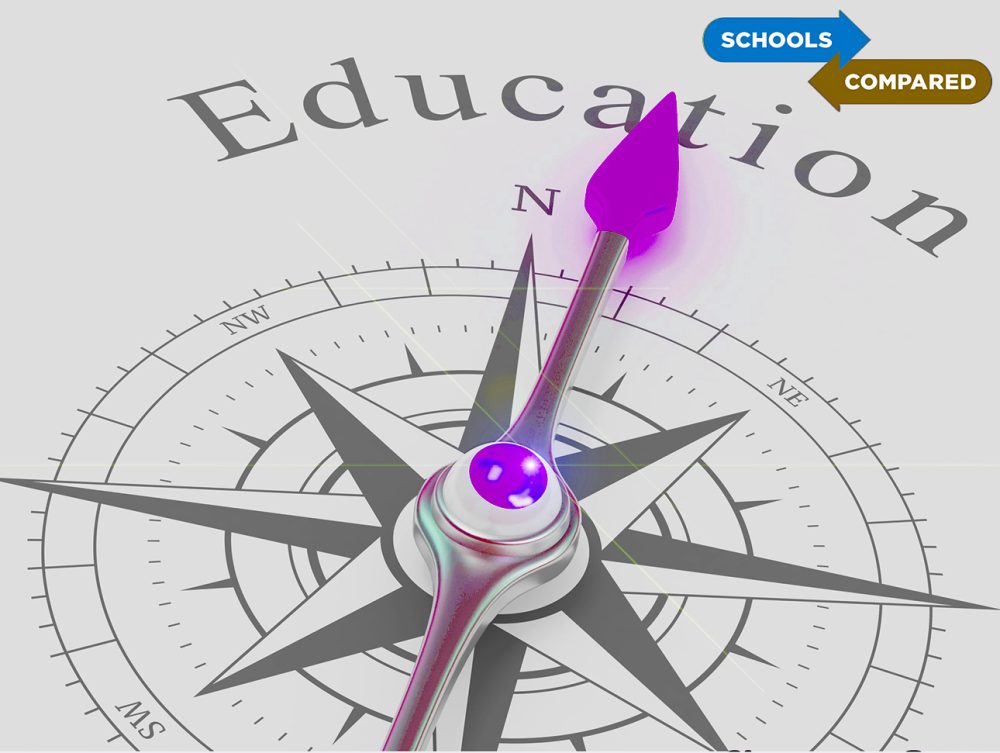
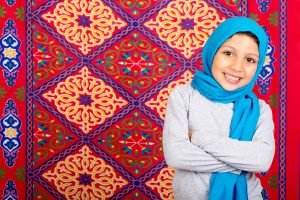










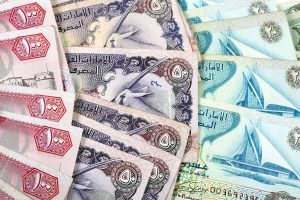


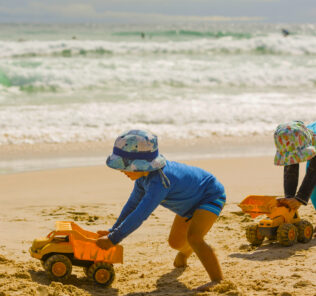


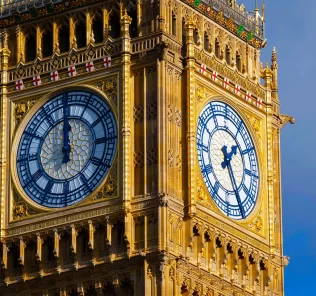


















Leave a Response